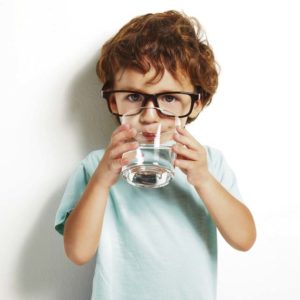
How do pharmaceutical residues get into our waters?
Medicines are not fully absorbed by the body. In part they are chemically unchanged when excreted. Ointments are rinsed off the skin when washing. In this way, via municipal sewage large amounts of pharmaceutical degradation products are emitted into soil and water with human and animal excretions. Carelessness and incorrect disposal of drugs down the drain or toilet increase the concentration of this chemical cocktail in our waste water. As sewage plants are not yet able to absorb, convert or bind these substances diffused in the waste water, the amount of pharmaceutical residues in streams, rivers and lakes is increasing constantly. To a certain extent, they can even be found in drinking water. This is how drug residues potentially affect our health and have a very negative impact on microorganisms and fish. If at all, it is very difficult to biologically degrade medicinal products. Once they have entered the water cycle, they are hard to remove. This makes it all the more important that we avoid or at least reduce the release of medicinal products in the environment as much as possible.
In Kaiserslautern county, non-recyclable waste is incinerated at very high temperatures. Therefore, you are allowed to dispose of medicines in your container for non-recyclable waste (black can).
How to safely dispose of medicines
- Never flush unused medicine down the drain or toilet!
- Please wrap it into a newspaper or paper bag, put it into a waste bag, tie up the bag and throw it into the black can. The reason for this procedure is that the can might topple before it is emptied or that children look into it and mistake pills for sweets.
- If the package insert contains a specific note (e.g. for cytostatic agents in cancer drugs), do not dispose of these drugs in the black can, but take them to the hazardous waste truck (Umweltmobil) or the ZAK recycling center. By doing so, you can prevent unauthorized access by third persons.
- Paper boxes and inserts go in the paper can. It is not required to remove pills from their direct packaging (the so-called blister pack). You can discard the entire blister pack in the can for non-recyclable waste.
- When disposing of objects with points or sharp edges (glass ampoules, syringes, etc.) you should use a non-penetrable box with a screw cap and put the box in the black can.
- If you are unsure whether a certain medicine can be considered non-recyclable waste, you always have the option to take it to the ZAK recycling center or the hazardous waste truck. While pharmacies are not obliged to take back unused or expired drugs, some offer this customer service on a voluntary basis. (e.g. Ramstein pharmacy)
Avoid drug residues
It is vital to act responsibly when handling medicinal products. Please check your supplies for medicines that are still usable before buying new products. In this way, you can avoid medical waste before it occurs.
Attention!
Never flush medicine (whether liquid or solid) down the toilet or drain!


